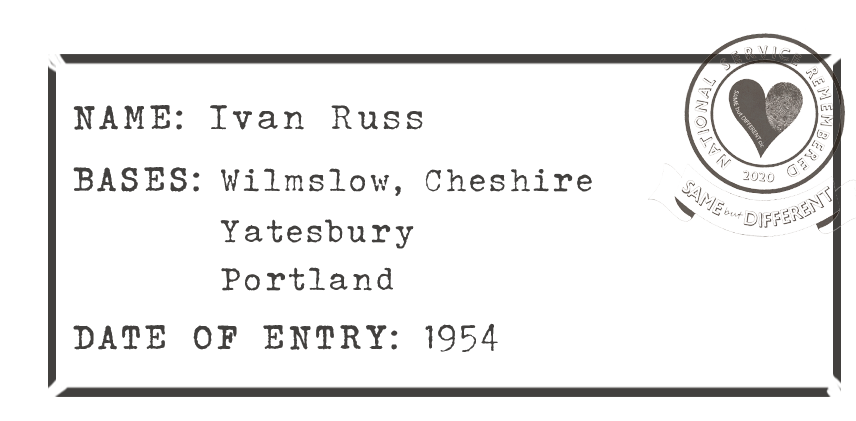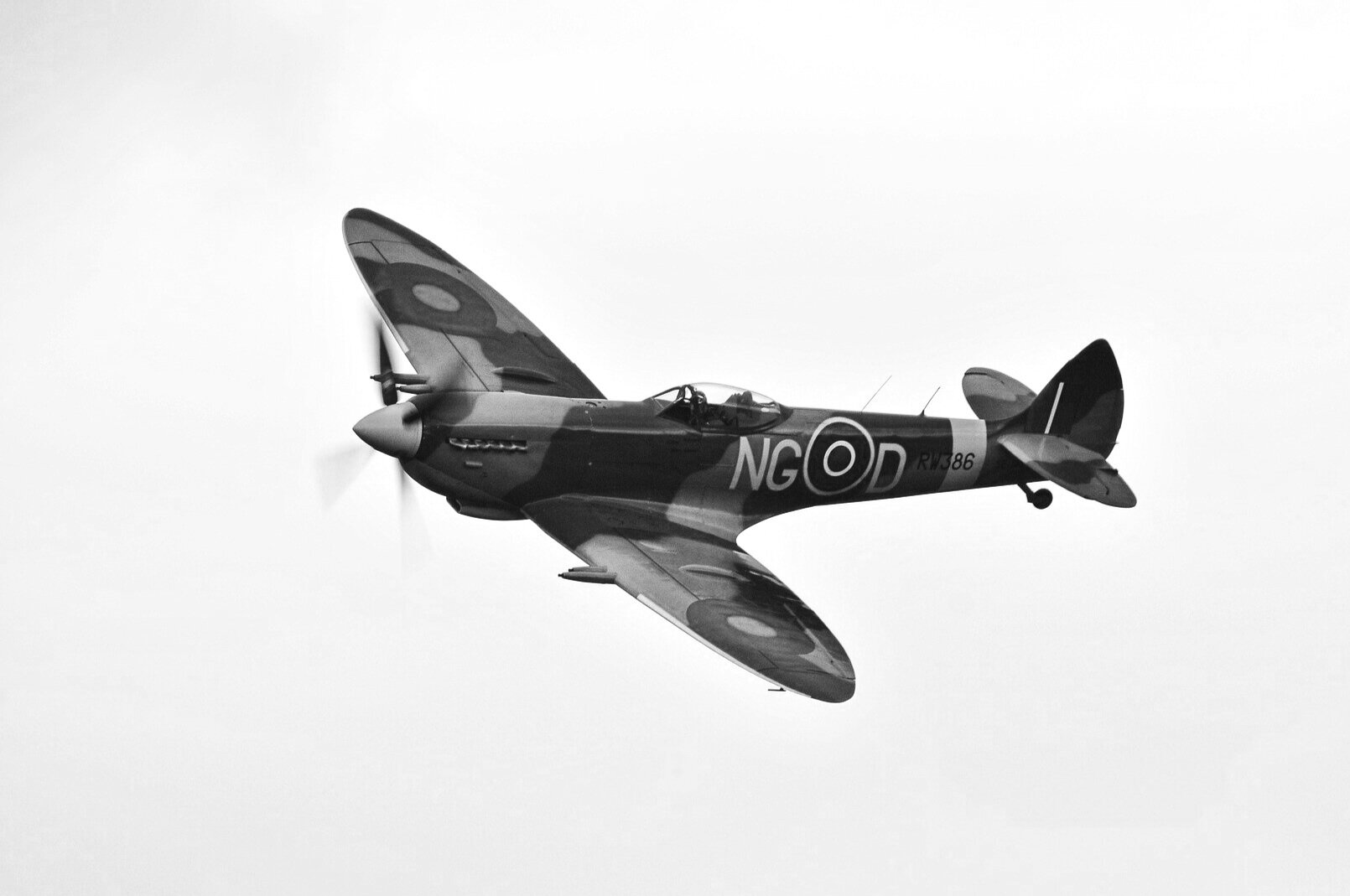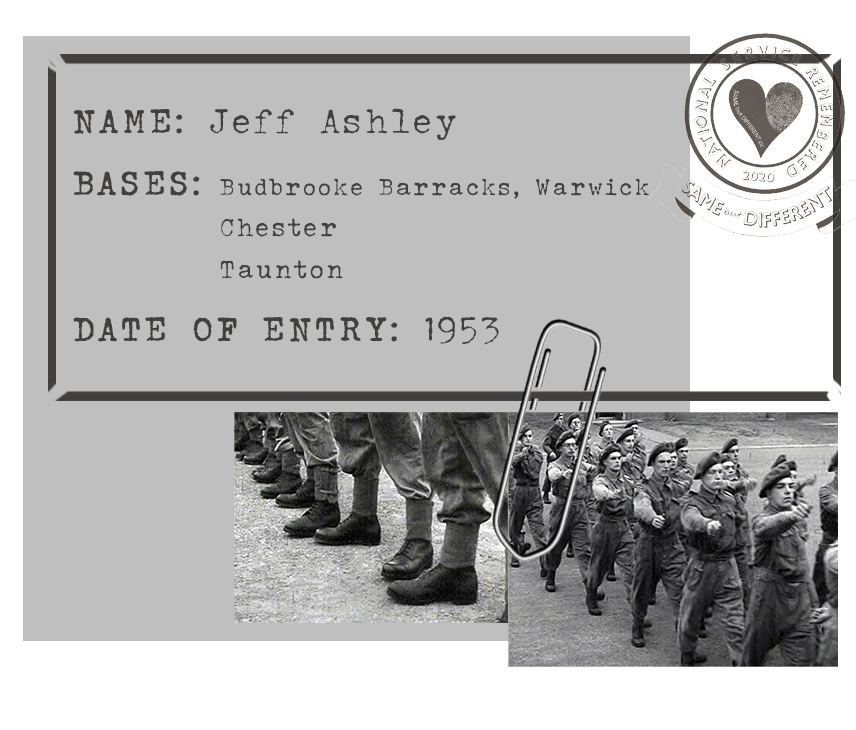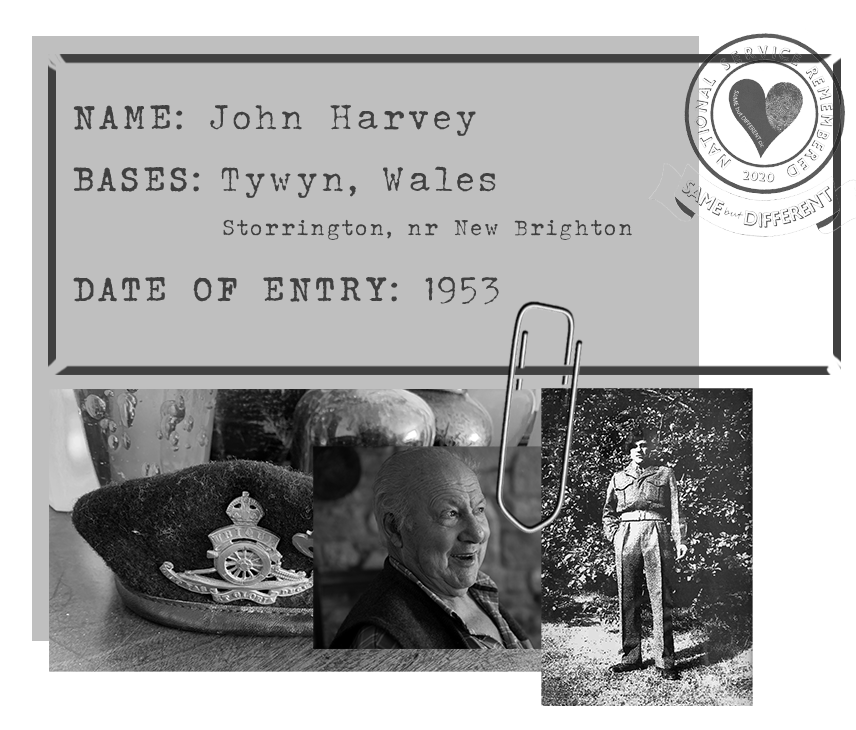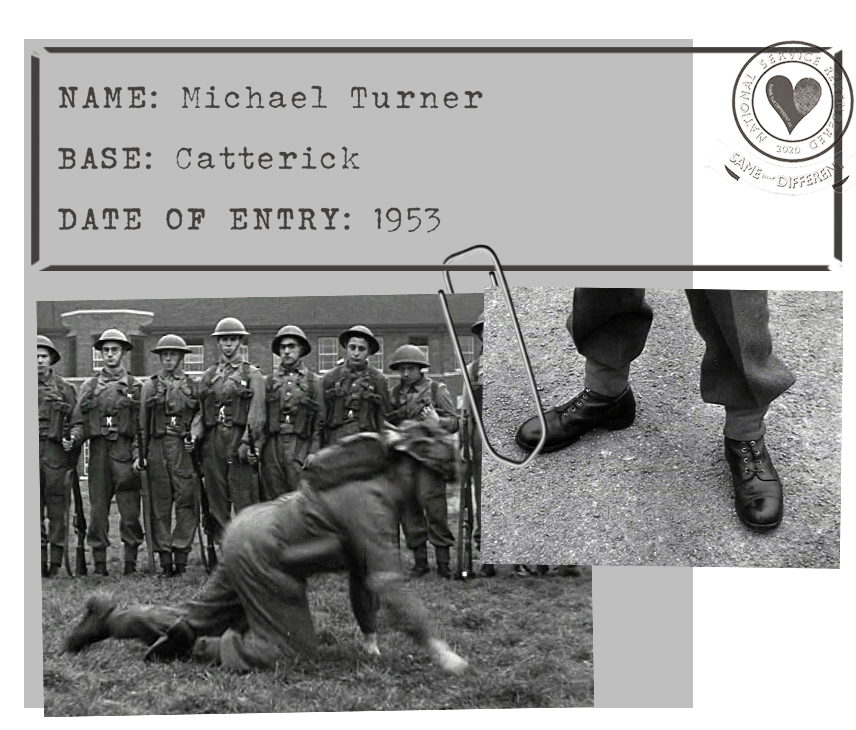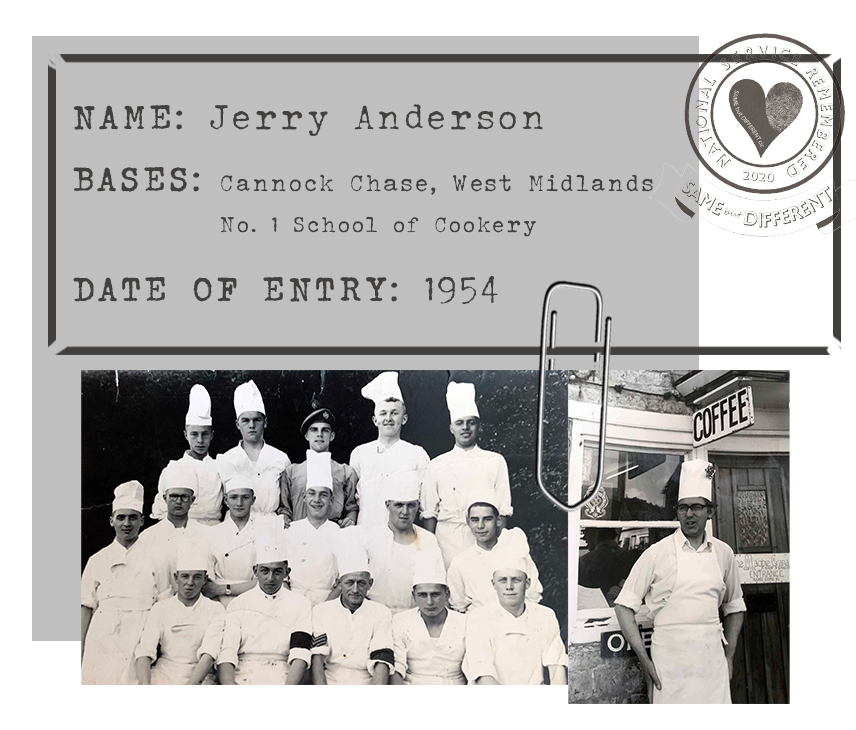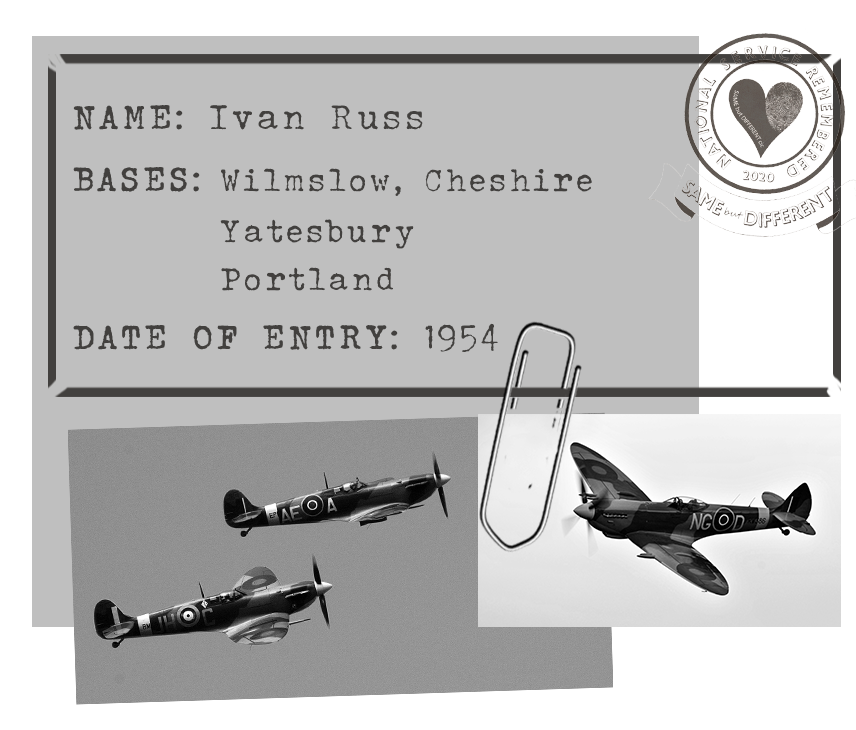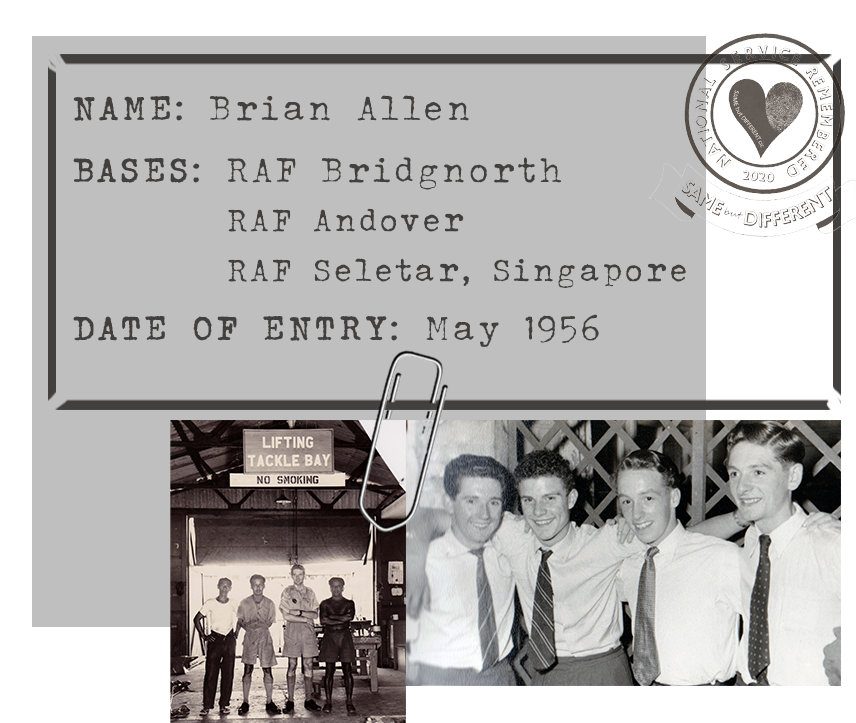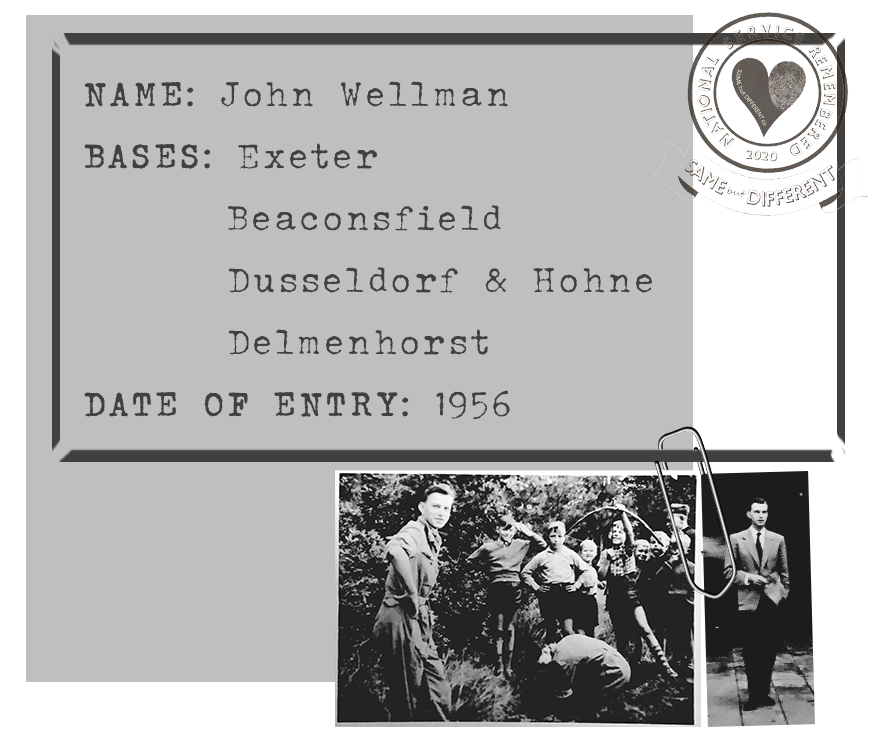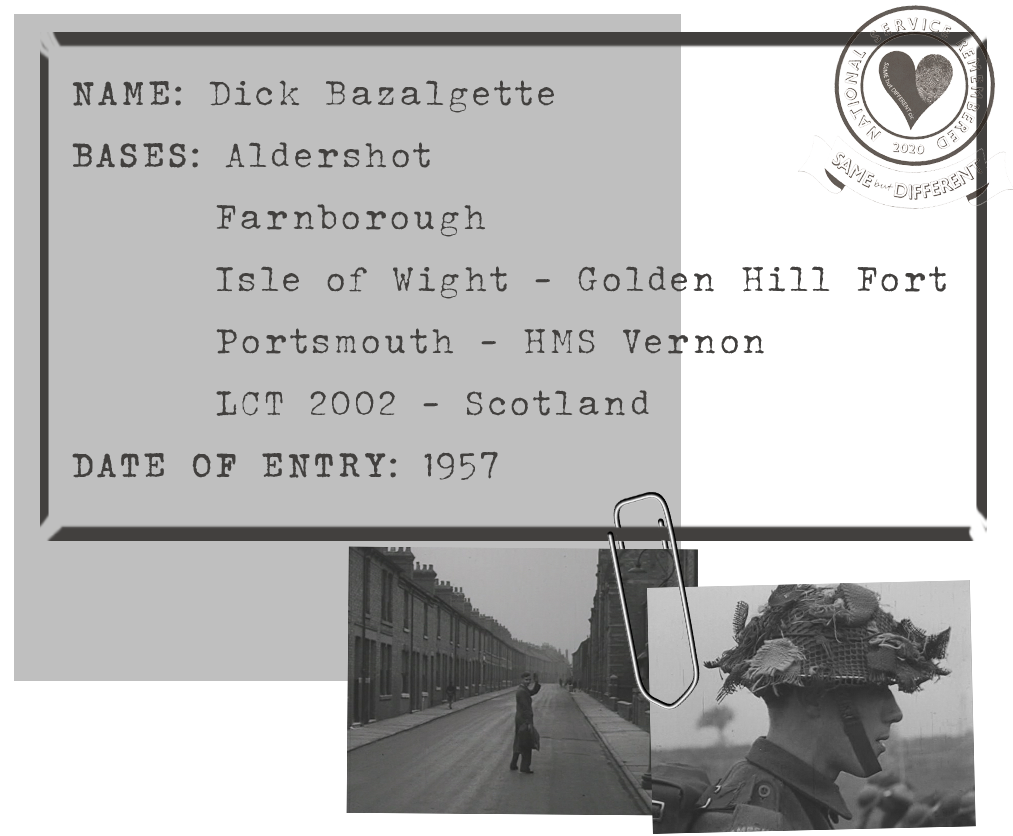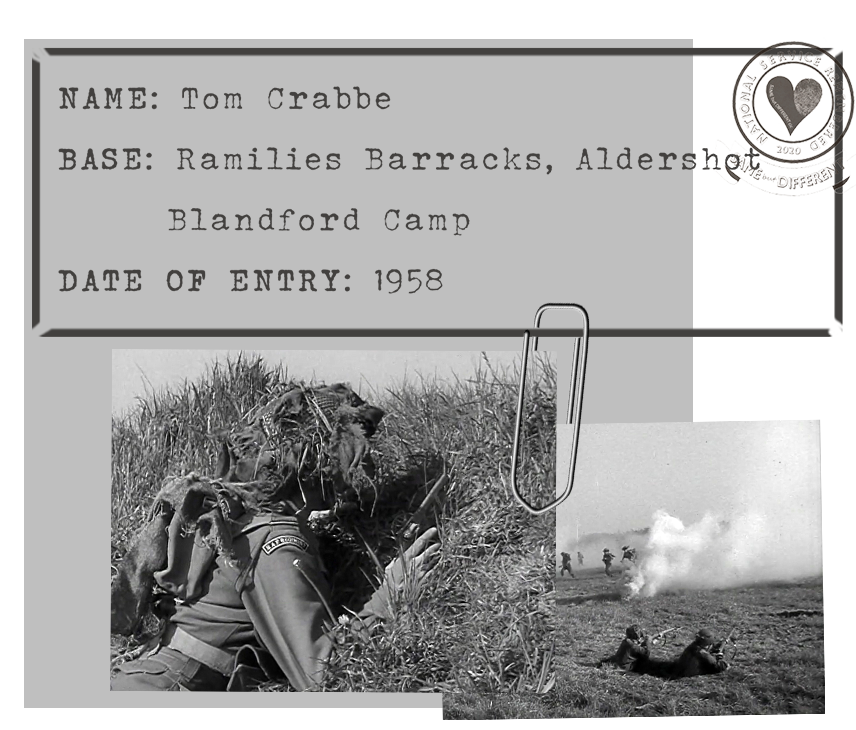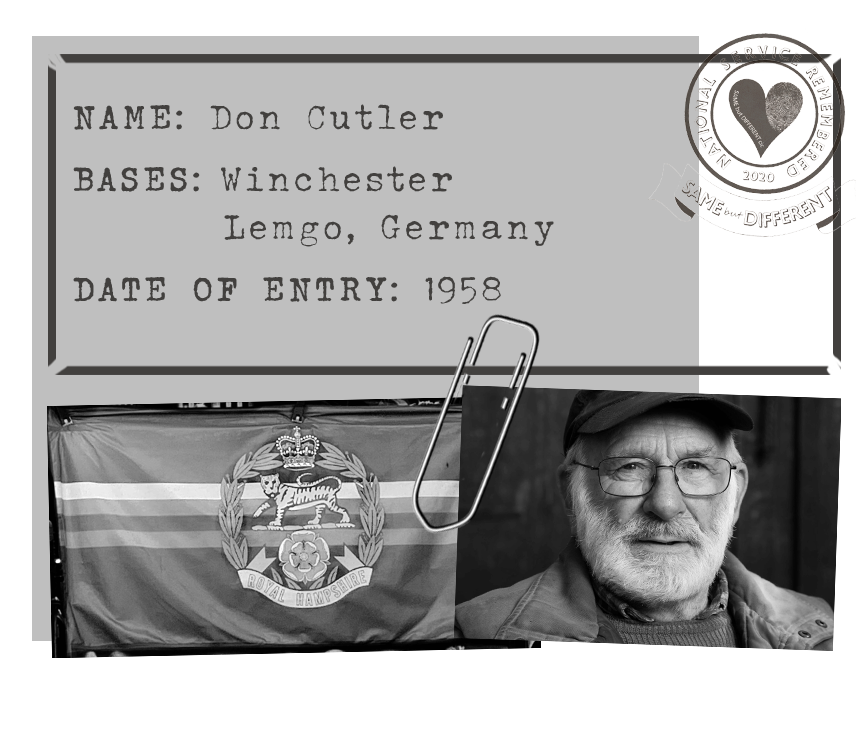I was born in Uffculme in Devon.
It was quite a difficult childhood because Dad was a First World War casualty, not physically serious, he had shrapnel wounds, but mentally serious. He was in the Dardanelles in Turkey and had a really bad time there which led him to become an alcoholic. That meant that there was never much money at home, I had four brothers and we had poor housing. Fortunately, it wasn't long lasting because we were allocated a Council house in a nearby village which was brand new.
I left school at 15 and did a five-year apprenticeship as a cabinetmaker with a man who was very skilled at woodwork. He had been a conscientious objector in the First World War and he had to go and work in an aircraft factory, making wooden aeroplanes.
I knew I had to do my service unless I was physically unfit. It was a pity because I’d completed my apprenticeship and being deprived a man's wage, but in retrospect it was the best thing because I was a country boy down in Devonshire and I was then thrown into the British mix of people my own age, and that was eye opening. When you hear about lads that grew up in Glasgow and the room was separated by a curtain stapled to the ceiling to separate one family from the other, it makes you think a bit.
“There was never much money at home, I had four brothers and we had poor housing. Fortunately, it wasn’t long lasting because we were allocated a Council house in a nearby village which was brand new.”
I got the train up to London, then to Cardington in Bedfordshire, just for a few days to get my uniform and then I went up to Wilmslow in Cheshire for square-bashing. At the time, they also had the female recruits for the WAFS. It was very sad actually, for all sorts of reasons, the girls decided to join the WAF to get away from home but they soon found it was no picnic and went to extreme lengths to get out.
We knew we were going to get an easier life after square-bashing.
It’s all shouting and swearing, trying to reduce you mentally, change your attitude. I think our generation knew we had to do things and the easiest way was to just accept it and get on with it, but we knew that trade training was going be easier.
After square-bashing I was sent down Yatesbury to train as a radar operator (I knew nothing about radar) and sadly, that meant that I was stuck in the UK. I ended up in Portland, which was a very nice posting. The billets were nice, relatively new, plenty of bathroom facilities. The camaraderie was great, we used to leg pull and it was always fun, a much more relaxed atmosphere.
We probably didn't study as well as we should have and weren’t getting good pass rates in our exams, so we got shouted out and had to knuckle down. We all got record passes and ended up as SAC senior aircraftsman.
When you become senior aircraftsman, an LAC, or an aircraftman you can't change certain disciplines but then I was asked by the flight Sergeant to takeover running a small café because we were in a secret underground radar station, to which the NAAFI weren’t allowed. It was secret, secure, and so if we wanted a snack or a cup of tea or coffee, we had to provide it ourselves. It was great. Then, because I done technical training, they wanted a draughtsman to check the performance of some of our radar systems. I was reading from the screen so that the WAF plotters box near Bath were able to put it on their big marked out table, where different aircraft were. The radar systems we had were quite good, considering it was the 50s. For instance, I had to produce a graph – you had a baseline of vertical and horizontal and I took in some 800 different plots which were given to me as a distance and height. You’d put a dot in where you read that as and by the time you've got 500 in there, you’re getting a sort of a diagram like a big bubble with a tail, like a raindrop really from the radar aerial. We found that, at that time the Berlin Wall was up, and the Cold War was going on, if they were high enough, we could plot in Eastern Germany from Portland. It was amazing. We also had a tower there for plotting shipping because the higher you go off the terra firma, the better you can get the radar to stay on the curvature of the earth.
“I was asked by the flight Sergeant to takeover running a small café because we were in a secret underground radar station, to which the NAAFI weren’t allowed. It was secret, secure, and so if we wanted a snack or a cup of tea or coffee, we had to provide it ourselves. It was great. ”
Portland was on the end of a group of stations and we had our rations supplied by another station with the result that they chose all the best stuff and kept it. We were getting so much powdered potato that there was a bit of a revolt. We were all confined to camp but that was the only time we stepped out of line. It was a bit farcical really and it didn't improve the food very much, so it was a bit of a lost cause. The food generally was very ordinary, nutritious but probably a little bit poor.
I earned 27 shillings a week.
We kept most of it unless there were barrack room damages like a broken switch or something. We had to pay for that and if it didn't get fixed, we’d have to pay for it again.
When we weren’t working, we’d be sun-bathing or we’d go into Weymouth. We had a pretty easy time. When we weren't actually doing radar operating, we did quite a bit of time on the naval rifle range. We also did a commando raid although we weren’t commandos - we had to break into our radar site and they had dogs and RAF police patrolling, but we got in. I remember thinking these dogs are supposed to be trained, because a day or two before, the works people had cut the grass so it was all dry, then they set alight to it. When I had to hide, I lay down in the ashes and the dog didn't pick me up.
I remember I got a mosquito sting on my leg and it turned septic, rubbing against the rather coarse RAF trousers, and I spent two or three days in sick bay. That wasn’t too bad, but while I was there, I met my first wife Maggie. When I was demobbed, I stayed on working in Portland because we were going to get married and our first son was born there in 1957.
That was the best thing to come out of National Service.
Many ex-servicemen didn’t want to go in the first place but when they finished, they were glad they had done it. Not only did I meet my wife but I got to know people from other walks of life, it widened the horizon greatly.
I didn’t manage to keep in touch with anyone though. At that time, we were a young family, with a little one and the housing situation was terrible We had a flat or a caravan and it became very difficult. We ended up with some kind person allowing us to rent a cottage after their elderly dad had to be taken into care. We left Portland in 1963 to move to Cullompton in Devon. My brother sold me a plot on his land and I built a brand new bungalow for us.
I did think about going back in the air force and I remember travelling with Maggie to Bournemouth to have an interview but they wouldn't give me back my rank SAC so that would’ve cost money. And they also wouldn't let me change from being radar operator, so we went there to get a married quarters but it didn't work out.
“I remember I got a mosquito sting on my leg and it turned septic, rubbing against the rather coarse RAF trousers, and I spent two or three days in sick bay. That wasn’t too bad, but while I was there, I met my first wife Maggie.”
When I was building my bungalow, I worked for different building firms then I became a building inspector for the local council.
National Service gave us the knowledge to operate in an independent manner and the ability to manage others. Many people say they should carry on with National Service; our grandson has just joined the air forces as a PTI but lots of them wouldn't be able to cope with it.
“I wouldn’t have missed it for the world.”


